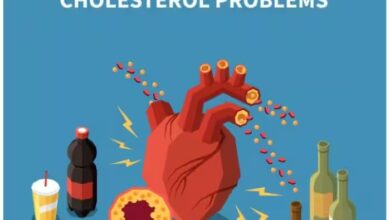According to a research, physical exercise reduces the risk of heart disease by lowering brain activity associated with stress
According to recent studies, physical exercise reduces the risk of heart disease in part by attenuating the activation of the brain caused by stress.

The results of this stress-related brain activity were also shown to be lower in physically active individuals, according to research published in the Journal of the American College of Cardiology.
Researchers discovered that “gains in function” in the prefrontal cortex, a part of the brain known to limit brain stress centers and aid in decision-making and goal-oriented behavior, were responsible for the reduction of such stress-related brain activity.
Additionally, the researchers discovered that individuals with depression and other conditions predicted to exhibit greater levels of stress-related brain activity benefited “substantially” from exercise in terms of their cardiovascular health.
“Among those with depression, physical activity was approximately twice as effective in lowering the risk of cardiovascular disease.” This unexpected discovery may be explained by effects on the brain’s stress-related activity, according to lead author Ahmed Tawakol, a cardiologist at Massachusetts General Hospital and Harvard Medical School in the United States.
The study included the analysis of medical information belonging to over 50,000 individuals who answered a physical activity survey. The group made use of information from the Mass General Brigham Biobank, a study initiative created to shed light on the relationship between a person’s environment, lifestyle, and heredity.
More than 700 of the 50,000 individuals also had their brain activity linked to stress measured and had brain imaging tests performed.
Over an average follow-up of ten years, the researchers discovered that around 13% of the subjects had cardiovascular disease.
Comparing individuals who met the physical activity requirements with those who did not, it was shown that the former had a 23% decreased chance of acquiring heart and associated disorders.
Prospective research is required to establish causation and find putative mediators. In the meantime, medical professionals might inform patients that exercise may have significant positive impacts on the brain, which could lead to increased cardiovascular advantages in those with stress-related disorders like depression, according to Tawakol.







